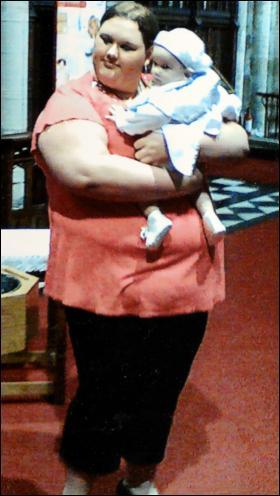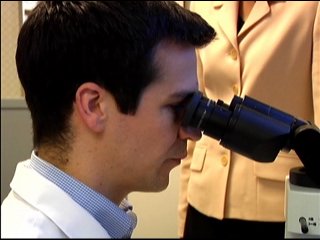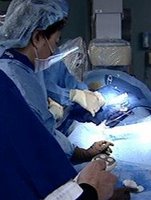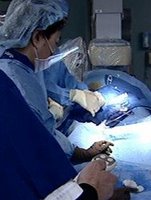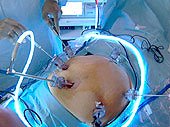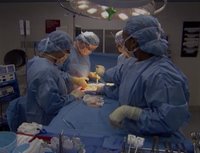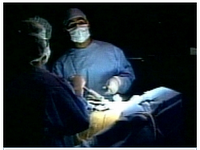 A different tune: Singer Tammy Fletcher: On her career, weight loss, her life
A different tune: Singer Tammy Fletcher: On her career, weight loss, her lifeTammy Fletcher is known for her big voice and commanding stage presence. But in the past two years, the Eden singer’s presence has physically shrunk. The 47-year-old diva lost 170 pounds off her 5-foot, 4 inch-tall frame.
The weight loss was spurred by the discovery that Fletcher had Type 2 diabetes and further fueled by her mother’s death last year. A stressful job and unhealthy lifestyle factored into her weight gain, which topped at 344 pounds.
“I was an apple — a very big apple. But I carried it well. I’m an entertainer, and I have a good self-esteem,” said Fletcher, speaking by phone from her home this week. “But it’s a very unhealthy lifestyle for me.”
Fletcher lost 70 pounds through diet and exercise before she decided to have gastric bypass surgery in November last year. She’s lost 100 pounds since.
Here the well-known jazz, blues and gospel singer talks about her life-altering weight loss, her career and the “second half” of her life:
On why she undertook such a huge lifestyle change:
“I’m going to be 50 years old soon, and I want the other half of my life to be one of physical fitness. To do anything I want to do — to ride on a roller coaster because I’ll fit, to wear a size 12, which I do now. I don’t want my frame to get in the way of that.”
“Everyday of my life I’ve dedicated to service. ... For once I want to take care of myself. Me first. Then I can do a better job at all the other stuff.”
On gastric bypass:
“I had gastric bypass. I need to tell people because they say I did it the easy way. In no way do I recommend this surgery to anyone. It was the most difficult thing I’ve ever been though. It was grueling, painful. It was a lifestyle change. It is a tool, not a miracle.”
On discrimination she faced for being overweight:
“I didn’t mind being a big girl. I loved being a big woman. ... It was just an outer shell. I didn’t like the way the world treated me. I didn’t like having to not to sit in an airplane without getting an extension, things like that bothered me. I liked myself. I tried to be a good role model for other large women. I try to carry the torch, to fight that fight. To not allow discrimination that is blatant.”
“I was booed at the Apollo not because I was white — because I was fat. Fat and white are a double death. Until I opened my mouth, and I won — until I sang, and I proved myself. I got tired of holding that torch.”
On her slimmer persona:
“I am who I am. I’m just a smaller version of that person. I command attention, no matter if I’m as big as I was or as medium as I am now. ... I’m half the girl I used to be, and I’m still a ton of fun, as I like to say. And I mean it. Now I can juggle more than one or two things.”
“I think it’s funny, people just stare at me. They don’t believe how I could possibly do this. Some people were angry; they missed this big girl who I was. That’s their problem.”
On her voice:
“People ask silly questions like ‘Is your voice the same?’ I can still sing, and I have more energy now to sing longer. Because I was so heavy it was an incredible workout to sing, it was very tiring. I was warm all the time, sometimes I’d get lightheaded and I never knew why. (Diabetes) was coming on. My body was starting to show signs.”
How her renewed health affected her career and propelled her back into the recording studio in December:
“I have a purpose. There’s meaning to my life, and I have a direction and I couldn’t do it being unhealthy. One of which is writing my own music and recording an album of my stuff with musicians who are the best. I couldn’t do it because I was physically unhealthy, depressed and just sick, physically sick.”
On continuing to lose weight and maintain her health:
“I have a sweet tooth, and it’s tough for me. My blood sugars are all normal because I’ve lost so much weight. I’ve been able to maintain it and keep a healthy attitude about it and realize it’s about portion control. A calorie is a calorie is a calorie.”
“I completely changed the amount of food I ate. I changed the quality of the food I ate. I don’t eat fast food. I try to pre-prepare ... I’m not perfect at this, I’m just learning. I work out on a daily basis in a small way. Anything I can do, whether its dancing in my house, running up and down the stairs. Every step counts. Don’t think it doesn’t because it all adds up.”
Her advice to people who are considering gastric bypass surgery:
“If you can do it conventionally, do it. (The surgery) saved my life, but by no means is it simple. I cannot stress support enough. You must surround yourself with people who support you on this. You cannot support yourself with naysayers. You will suffer.”
“I didn’t go into this lightly. This is a serious change of life and your family will change with you or they won’t. You’ll have to bear that. It’s not about your family it’s about you.”
Labels: gastric bypass risks, gastric bypass side effects, gastric bypass surgery, patient stories
